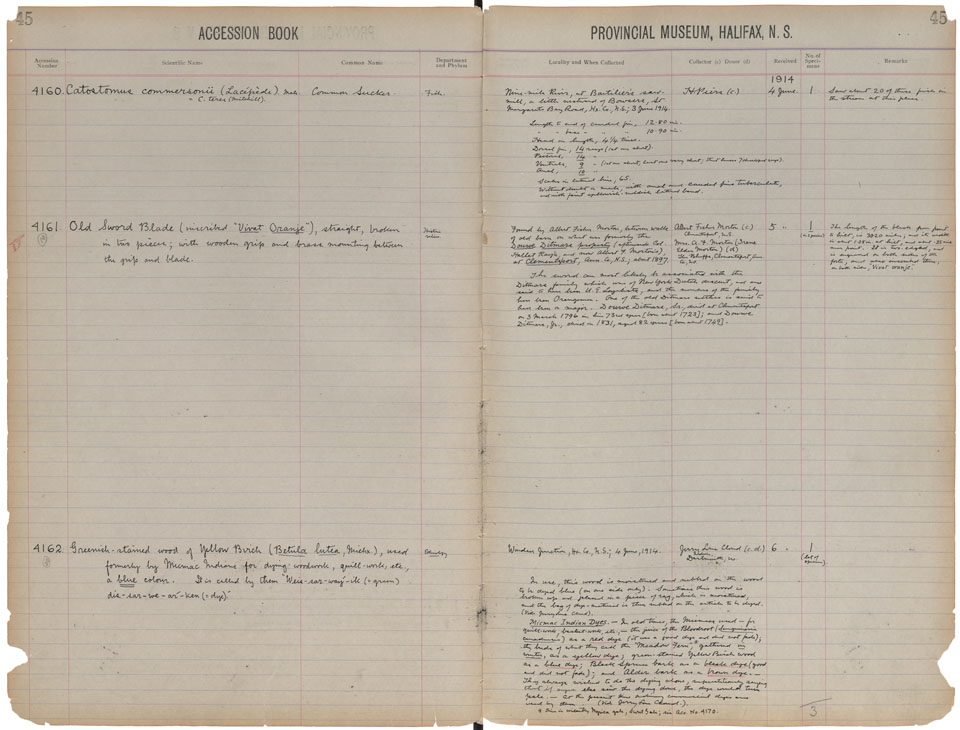Nova Scotia Archives
Harry Piers: Museum Maker
4162 — ''Greenish-stained wood of Yellow Birch (Betula lutea, Michx.)''
Notes from Piers Accession Book:
Scientific Name: Greenish-stained wood of Yellow Birch (Betula lutea, Michx.), used formerly by Micmac Indians for dying woodwork, quill-work, etc. a blue colour. It is called by them "Weis-sar-way'-ik (=green) dis-sar-we-ar'-ken (=dye)."
Locality and When Collected: Windsor Junction, Hfx. Co., N.S.; 4 June 1914
Collector (c) Donor (d): Jerry Lone Cloud (c.d.) Indian, Dartmouth, NS
Received: 1906 Jun 14
Quantity: 1 (lot of specimens)
Remarks:
In use, this wood is moistened and rubbed on the article to be dyed blue (on one side only). Sometimes this wood is broken up and placed on a piece of rag, which is moistened, and the bag of dye-material is then rubbed on the article to be dyed. (Vid. Jerry Lone Cloud). / Micmac Indian Dyes. - In old times, the Micmac used - for quill-work, basket-work, etc., - the juice of the Bloodroot (Sanquinaria canadencis) as a red dye (it was a good dye and did not fade); the buds of what they call the "Meadow Fern," * gathered in winter as a yellow dye; green-stained Yellow Birch wood as a blue dye; Black Spruce bark as a black dye (good and did not fade); and Alder bark as a brown dye._ They always wished to do the dying alone, supersititionsly saying that if anyone else saw the dying done, the dye would turn pale._ At the present time ordinary commercial dyes are used by them. (Vid. Jerry Lone Cloud.). * This is indicating Myrica gale, Sweet Gale; sic Acc. No. 4170
Date Accessioned: 14 June 1906
Reference: Harry Piers number 4162 Nova Scotia Museum Botany Collection

